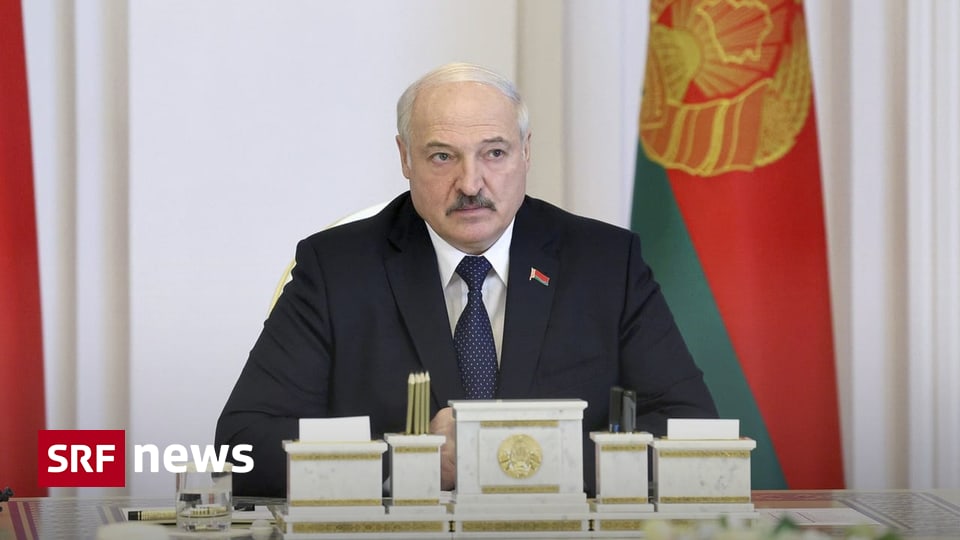The tyrant is now also closing the pen club. This means that writers in Belarus can hardly publish books.
All about this: Belarusian autocratic ruler Alexander Lukashenko is taking increasing action against critical civil society. The Belarusian Center for Human Rights Viasna announced last weekend that a “total purge”, including political persecution, was underway across the country. More than 40 NGOs, including humanitarian initiatives and legal aid – and the PEN Center in Minsk, have now been banned or closed. This makes it virtually impossible for Belarusian writers to publish anything else. “You are threatened with arrests and searches,” says Jasper Steinlein, ARD correspondent in Moscow.
This is how the closure is justified: A civil lawsuit was filed against Al Qalam Center. Steinlein said it may have been for this purpose that the club’s offices were recently searched – note that there were no members on site. The search for a loose cause is now being carried out – as in the case of the Association of Women Journalists. This was blocked due to errors in the office lease documents. “The PEN Club has been collecting information on human rights violations against people involved in cultural work since August of last year.” That is why he was targeted by Lukashenko.
Now it’s the book’s turn. “In Lukashenko’s mind, everyone belongs to the opposition, which does not always stand on his side,” says Steinlein. Last year, the head of the Belarusian PEN Center, Nobel laureate Svetlana Alexievich, asked Lukashenko to resign. “He can’t let that sit on it.” In order to escape the possible repression of the autocratic ruler, Alekseevich has been living in Germany since September 2020. Like you, many critically minded Belarusians have gone into exile in recent months.
These are the consequences for the opposition: “The mass demonstrations, as we saw them last fall, have disappeared,” the reporter notes. The suppression of the system is very large. But there are still actions and small meetings of the opposition. Such small protests will be filmed and broadcast on the Internet. This way, critics stay virtually present. The Belarusians who fled abroad are also very observant. “Lukashenko is already talking about ‘agents and provocateurs’ who want to destabilize Belarus from abroad,” says Steinlein.
Here is what it means for the people of the country: Pressure on civil society is increased by the regime’s action against NGOs. “The scissors in the head get bigger and bigger,” Steinlein says. People became more and more afraid and it became increasingly clear: “Change in Belarus is undesirable – and, as Lukashenko sees it – it can only come from above, and never from people.”

“Tv specialist. Friendly web geek. Food scholar. Extreme coffee junkie.”







More Stories
Italy: State broadcaster RAI in crisis over Meloni – News
North Korea has a new (propaganda) song, sorry sausage
Plane from Olympic Airlines: Ellinikon's Boeing 727 is designed in a new location